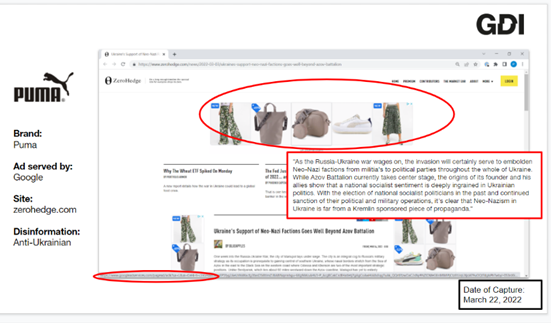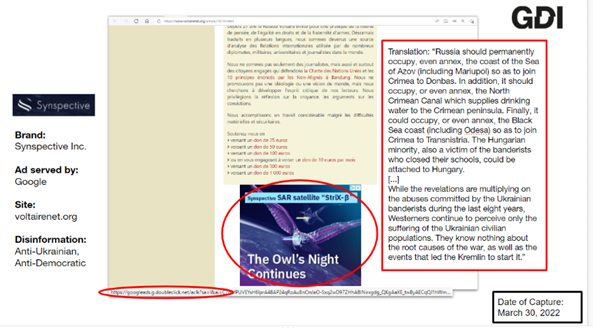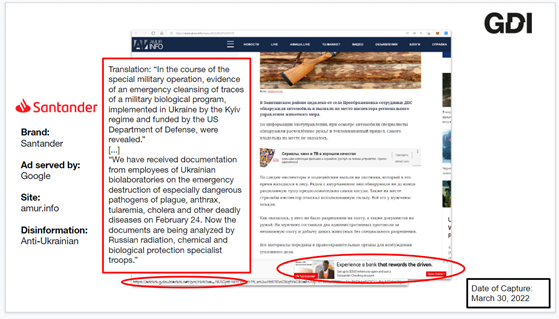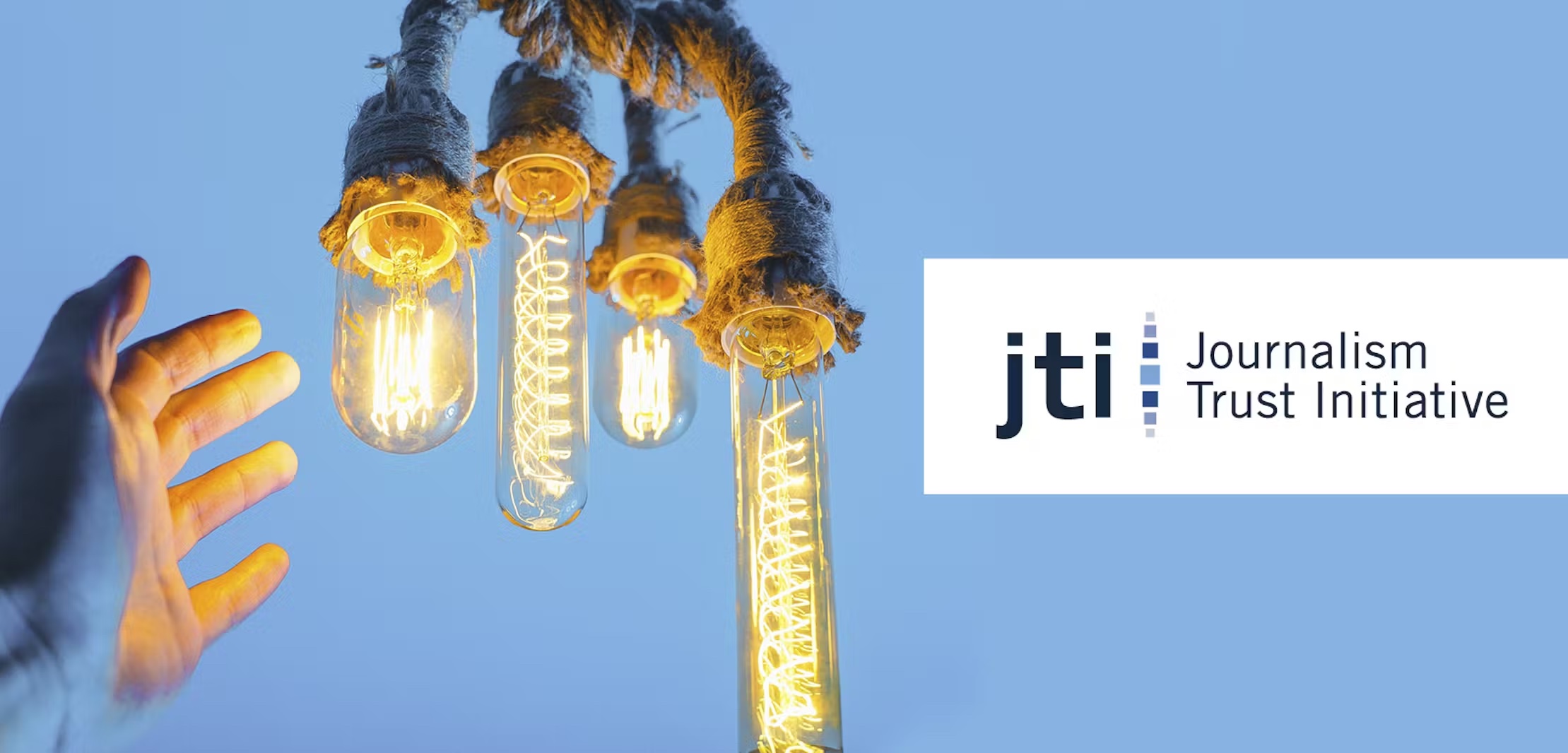The Global Disinformation Index (GDI) is a member of the EDMO task force on Ukraine and has been tracking the monetisation of harmful disinformation on the conflict in Ukraine for over a month. GDI uses the lens of ‘adversarial narratives’ in its approach to defining and assessing disinformation. Adversarial narratives are intentionally distributed narratives which seek to enrage and divide viewers. These narratives have 2 key elements, they are:
- Adversarial against an at-risk individual or group, democracy and its key institutions, and/or scientific consensus.
- Narratives which carry a risk of harm.
Using this framework, GDI transcends overly simplistic true/false categories and identifies disinformation by the specific adversarial topic. Currently GDI tracks over 20 adversarial narrative topics such as antisemitism, misogyny, climate change denial and anti-vaccination. Two of these topics — anti-Ukrainian and anti-democratic — are being showcased in regular reports from GDI on disinformation surrounding the war in Ukraine. The stories include adversarial narratives that falsely claim or advocate, for example, that neo-Nazism is deeply ingrained in Ukraine. Each report shows the adversarial narrative being published, the advertiser that unwittingly funded that story through their ad placement, and the ad tech company responsible for that ad placement.
A ‘special operation’ to “de-nazify” and demilitarise Ukraine

GDI continues to observe the funding of stories which falsely claim that the Russian Federation is carrying out a ‘special operation’ to “de-nazify” and demilitarise Ukraine. The existence of far-right groups is not unique to Ukraine and has been a growing concern across Europe on their prominence in democratic countries. However, research from EUvsDisinfo has debunked this denazification narrative as justification for the Russian invasion given that Nazism is not Ukraine’s ideology. GDI has observed ad tech monetisation of adversarial narratives in relation to this. For example, narratives that use this as a rationale that Russia should occupy or annex various regions of Ukraine.
‘Russia should occupy or annex various regions of Ukraine’

The UN General Assembly and Security Council have on many occasions deliberated and affirmed that annexation is a serious violation of fundamental principles of international law. This is a particularly harmful adversarial narrative given that UN Independent Experts have condemned annexation because it incites wars, economic devastation, political instability, systemic human rights abuses and widespread human suffering.
Another harmful adversarial narrative is that the U.S. is helping and developing biological and nuclear weapons in Ukraine.

GDI has observed Google, Criteo, RevContent, Yandex and other ad tech companies servicing advertisements and funding harmful anti-Ukrainian and anti-democratic disinformation content. The nature of programmatic advertising makes it complex for advertisers to control where their ads appear. Therefore, affected brands observed include popular brands that have announced they are pausing business with Russia as well as humanitarian and aid organisations that are seeking to help those harmed by the Ukraine conflict.
One of the core outputs of GDI is the Dynamic Exclusion List (DEL) of global news publications rated high risk for disinformation. The DEL contains the worst offending websites and apps across multiple countries and languages and is continually updated to capture new disinformation sources and narratives. Ad tech companies have the opportunity to showcase leadership here, and GDI’s tools enable them to make that leadership impactful.
The goal of defunding disinformation will be only achieved if all the stakeholders involved in the ecosystem participate in it. This includes but is not limited to regulators, representatives of advertisers, communication agencies, and all media outlets. Greater scrutiny of the distribution of disinformation is needed. More focus is required on the governance and oversight side to ensure timely and accessible data from the tech industry. This means a multi-stakeholder dialogue in which civil society is actively involved in checking actions taken by platforms while identifying future trends or flagging potential issues. GDI will continue to track harmful disinformation on the conflict in Ukraine and contribute to the evidence-base for ad tech and policy makers towards defunding disinformation and reducing its harm.



